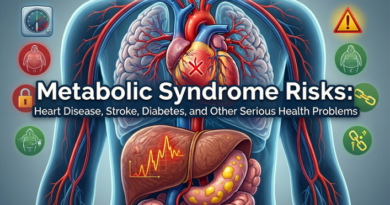Exploring Celiac Disease and its Impact: Unveiling the Mystery
Last Updated on 02/09/2026 by Helal Medical
In today’s fast-paced world, various health conditions are gaining prominence, one of such condition is Celiac disease. It is an autoimmune disorder triggered by gluten consumption. It may seem like a relatively unknown ailment, but understanding this condition and its effects is essential for fostering awareness and ensuring proper management. In this article, we delve into the depths of Celiac disease, its causes, symptoms, diagnosis, and the necessary steps to lead a fulfilling gluten-free lifestyle.
The Basics of Celiac Disease
It is also known as Celiac sprue or gluten-sensitive enteropathy, which is a chronic autoimmune disorder primarily affecting the small intestine. When individuals with this condition consume gluten, a protein found in wheat, barley, and rye, their immune system reacts abnormally, damaging the small intestine’s lining. This damage hampers nutrient absorption, leading to various health complications.
Causes and Risk Factors
While the exact cause remains unknown, researchers suggest a combination of genetic and environmental factors. Genetic predisposition plays a crucial role, as individuals with specific genes, particularly the HLA-DQ2 and HLA-DQ8 genes, are more susceptible. Moreover, factors like early childhood infections, gastrointestinal infections, and certain medical conditions, such as type 1 diabetes and Down syndrome, can increase the risk of developing this condition .
Recognizing the Symptoms
Its symptoms can vary among individuals. Common signs and symptoms include:
- Digestive issues: Abdominal pain, bloating, diarrhea, constipation, and vomiting.
- Weight loss and malnutrition: Inadequate nutrient absorption can lead to unintentional weight loss, malnutrition, and deficiencies in vitamins and minerals.
- Fatigue and weakness: Celiac disease can cause fatigue, weakness, and a general lack of energy.
- Skin problems: Dermatitis herpetiformis, an itchy skin rash characterized by blisters, is often associated with this condition .
- Iron-deficiency anemia: Chronic damage to the small intestine can result in iron deficiency and subsequent anemia.
- Bone and joint pain: Osteoporosis, osteopenia, and joint pain can occur due to impaired calcium and vitamin D absorption.
Diagnosis
Diagnosis involves a series of steps to confirm the presence of the condition. The process typically includes:
- Medical history assessment: Discussing symptoms, family history, and previous medical conditions.
- Blood tests: Screening for specific antibodies, such as anti-tissue transglutaminase (anti-tTG) and anti-endomysial antibodies (EMA), which are typically elevated in individuals with Celiac disease.
- Intestinal biopsy: A small tissue sample is taken from the small intestine during an endoscopy procedure to examine the damage to the intestinal lining.
Management – The Gluten-Free Lifestyle
Currently, the only effective treatment for Celiac disease is adopting a strict gluten-free diet. This involves eliminating all sources of gluten from the diet, including wheat, barley, rye, and their derivatives. While initially daunting, maintaining a gluten-free lifestyle becomes more manageable with time and proper education. Consulting with a registered dietitian can provide invaluable guidance on food choices, meal planning, and label reading.
Navigating Potential Challenges
Living with Celiac disease can present unique challenges beyond dietary adjustments. Social situations, dining out, and traveling may require extra precautions to avoid gluten cross-contamination
Summary:
Unveiling the mystery of Celiac disease, this article explores the autoimmune disorder’s impact, causes, symptoms, diagnosis, and the essential steps to lead a fulfilling gluten-free lifestyle. Discover the challenges of living with this condition and gain valuable insights into managing this condition effectively.
If you suspect that you may have any symptoms you may contact us, Helal medical offer quick, private, and convenient testing options.
Visit our Facebook page.
Discover more from Helal Medical Manila
Subscribe to get the latest posts sent to your email.


